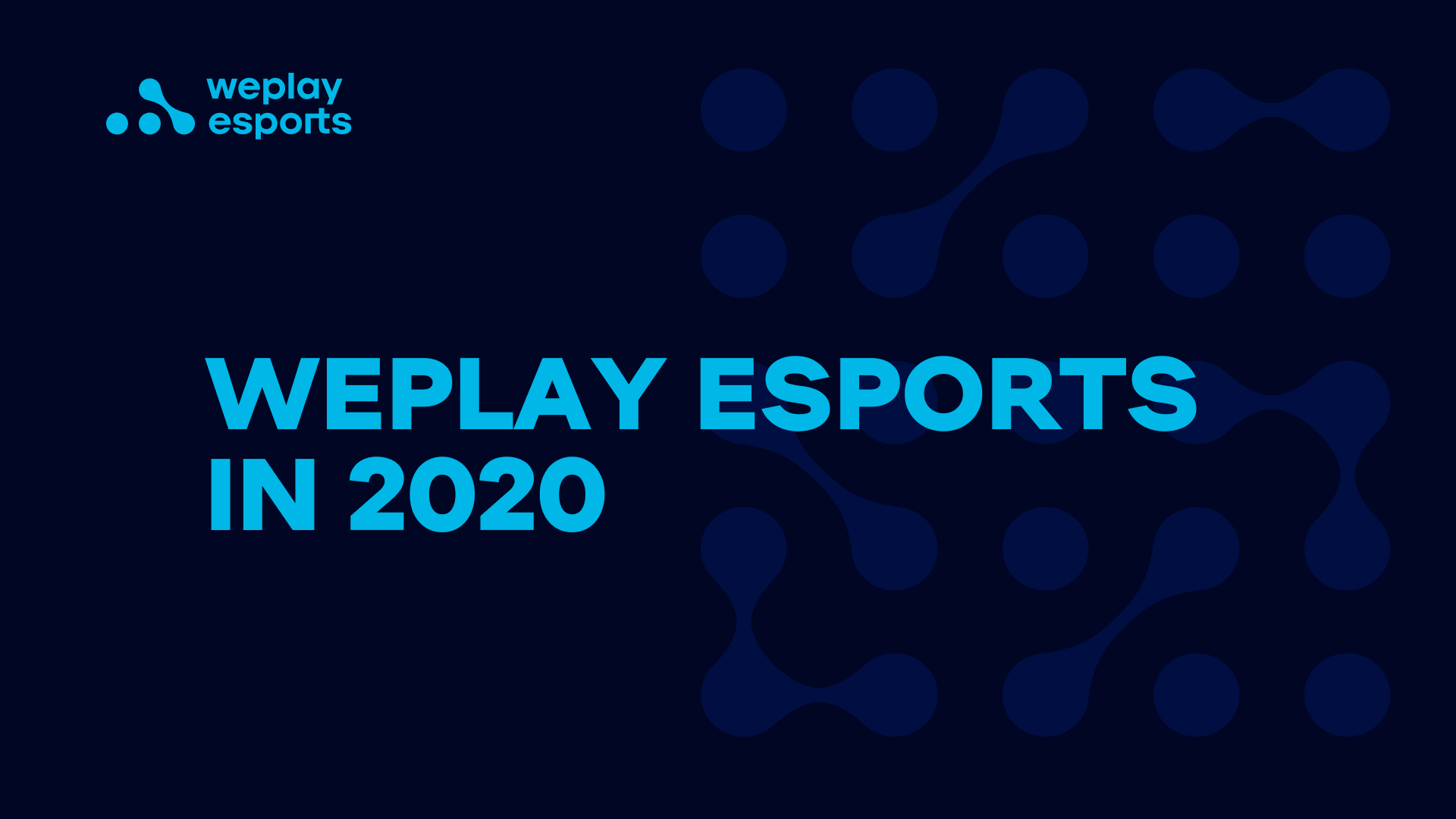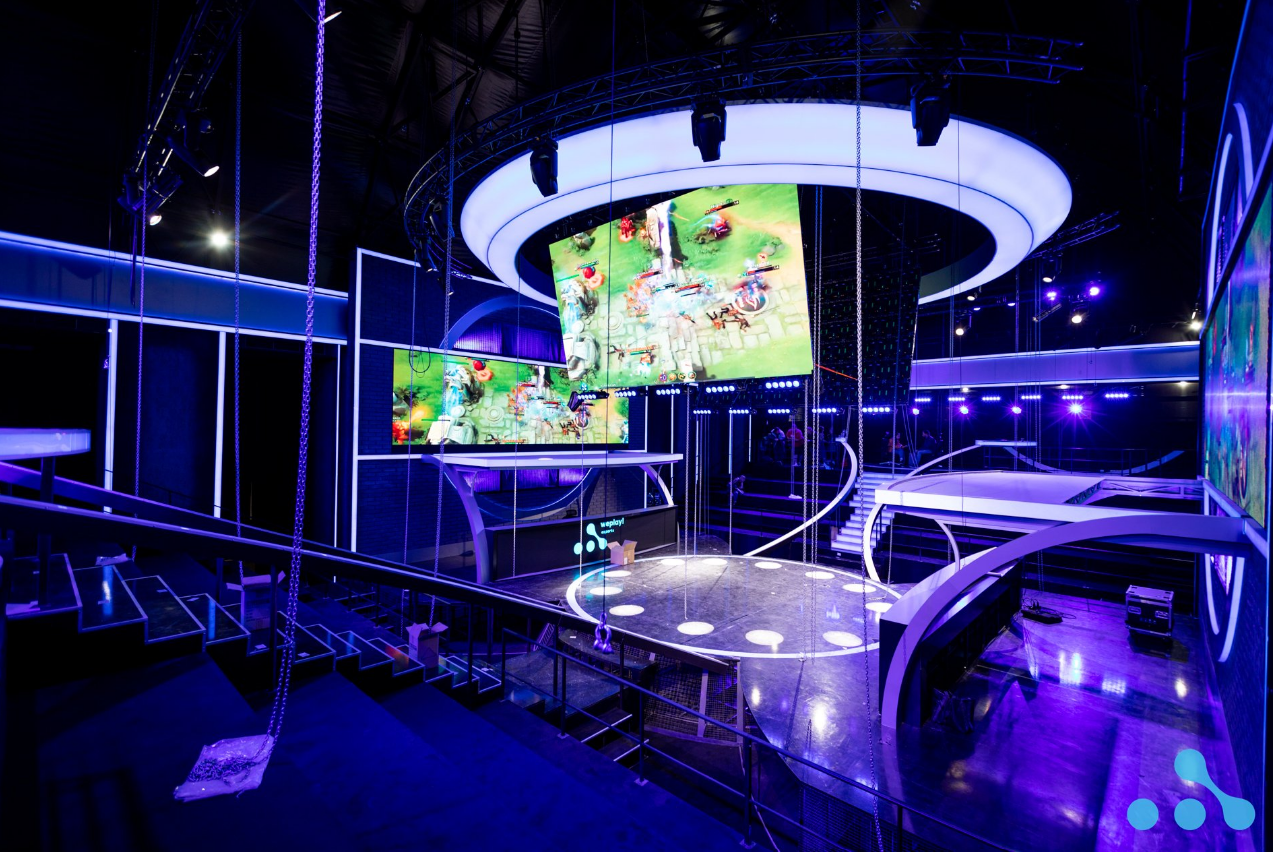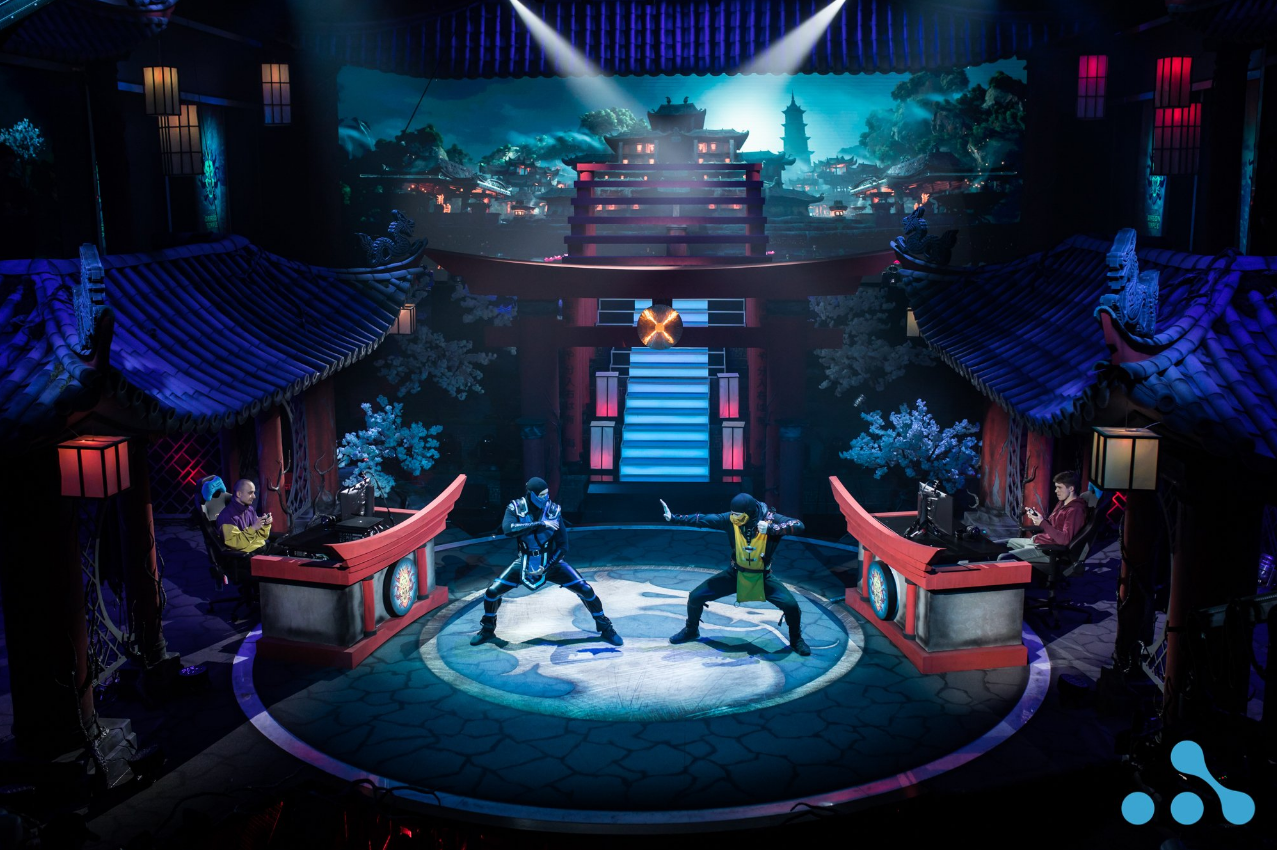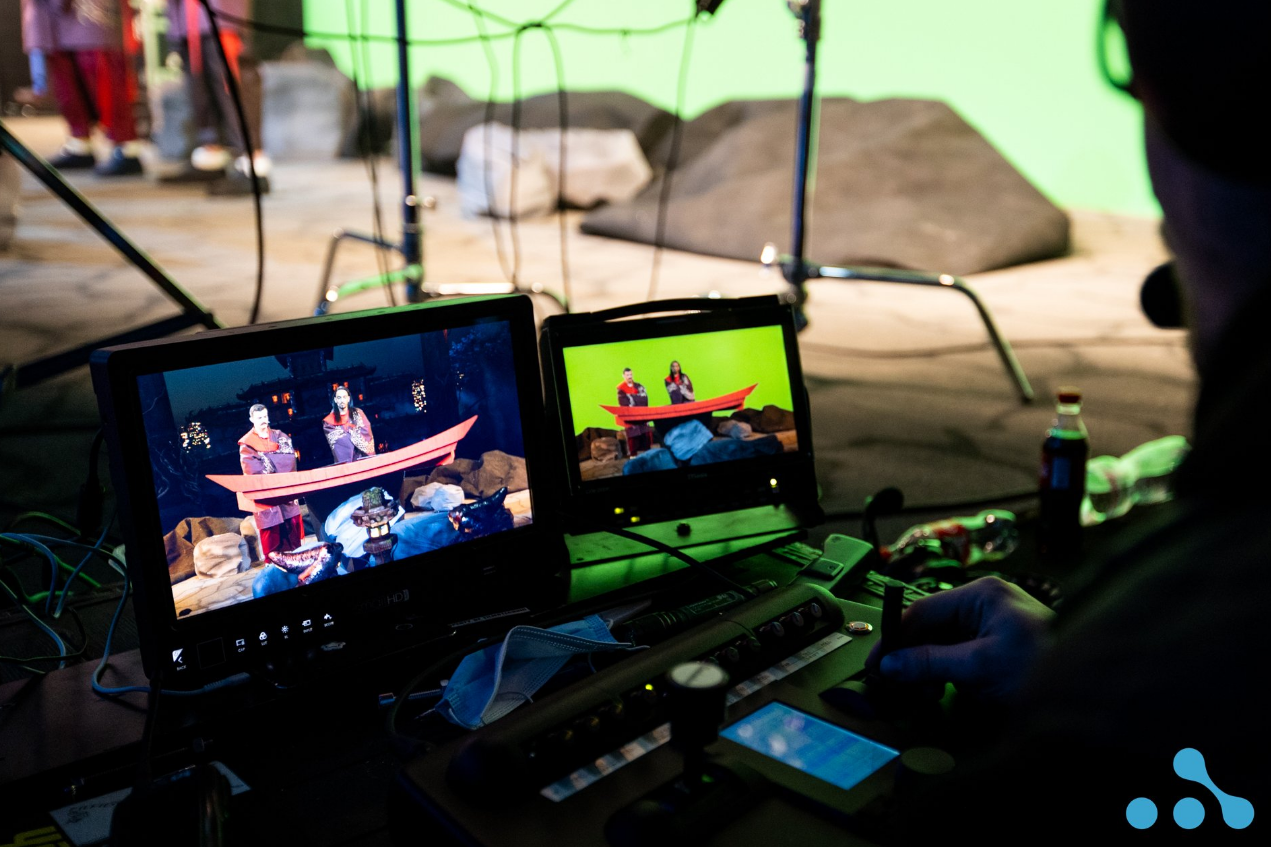Jan. 22, 2021
The Year in Review: How WePlay Esports Spent 2020

5 min read
A year to remember.
Company strategy: going global and becoming a media holding company
In 2020, all company activities were based on the two strategic goals: expanding fields of activity and increasing global presence. In this context, WePlay Esports has reached a milestone by transforming from a tournament operator into an esports media holding company.
In addition to organizing competitions, the holding company now focuses on developing its ecosystem of solutions and services for the esports market and community.
The ecosystem includes software such as the WePlay! Tournament Platform that allows amateurs and semi-pro players to master their skills and pursue a professional gaming career, and the most recent project — the Esports Transfers platform that analyzes in-game data and player career statistics to estimate the cost of a given esports athlete’s transfer. Also, in spring, the company launched WePlay! Got Talent, an open competition to find new talents (commentators and analysts) for the team.
“Our idea is to provide competitive gaming fans with tools and opportunities so that they can fulfill their potential professionally in this industry and take it to the next level. Together, we are pushing the industry forward. It’s a win-win, I think,” notes WePlay Esports CEO Oleh Humeniuk.
Besides, WePlay Esports started investing in the gaming and entertainment industry, with an online interactive platform Organization.GG being the first partner. The company also continues developing its expertise in brand integration into esports and media rights sales.
Increasing global reach also requires being physically present in a region of interest. “To engage more the audience across the globe and produce even more content regularly, we started constructing venues — esports arenas. We finished building WePlay Esports Arena Kyiv in November; the second facility in Los Angeles will be ready in the first quarter of 2021,” added Oleh Humeniuk.
Constructing the arena in Los Angeles is one of the steps that demonstrate WePlay Esport’s interest in the North American region. In September, the company opened a new representative office (also in LA), and in December, entered the fighting game scene that’s big and vibrant in the U.S.
The company’s first fighting game tournament, WePlay Dragon Temple, and the announcement of the partnership between Oleksandr Usyk and WePlay Esports Managing Partners Yura Lazebnikov and Oleg Krot were the highlights of the last month of 2020. If you haven’t heard about WePlay Ultimate Fighting League yet, check out this article.
Production power
Since we mentioned one of our tournaments, it’s time to give the floor to our second speaker — General Producer and Chief Visionary Officer Maksym Bilonogov.
“Funny thing. We started the year with two LANs [Dota Pro Circuit event WePlay! Bukovel Minor 2020 and WePlay! Dota 2 Tug of War: Mad Moon — ed.] and finished it with a LAN event, too, even though it was closed for spectators. Despite the purely online era that began with the pandemic and lockdown, we didn’t let these circumstances stop us from implementing our daring ideas. We followed our usual approach to event production involving the creation of a new concept, a new universe for each tournament. What remains unchanged is the scenery, tech-infused special effects, and live performances to keep the audience entertained,” says Maksym.
WePlay Esports events showreel (October 2020). Video credit: WePlay Holding
The production team introduced several AR-based broadcast tools. One of them is Picks & bans, a solution powered by Unreal Engine that lets you place 3D Dota 2 characters into a physical studio during the broadcast. Viewers first saw what this tool is capable of during WePlay! Bukovel Minor 2020. Designers recreated 120 characters, and programmers developed their movement logic. Heroes were shown for the online viewers while team players were selecting which one to play in the current match.
Pick and bans during WePlay! Bukovel Minor 2020. Video credit: WePlay Holding
Other AR-based solutions the team used in every tournament were set extension, windows showing statistics, player bio, or web camera feeds, as well as interactive maps. “During WePlay Dragon Temple, we also used green screen effects,” adds Bilonogov.
We can humbly suppose that the quality of production is one of the key reasons why so many esports fans followed our broadcasts. The WePlay Esports’ peak viewership record of 2020 belongs to the OMEGA League Grand Finals match between OG and Team Secret. It gathered 412,391 concurrent viewers. Another record that we think is worth mentioning is also connected with OMEGA League: the team successfully managed a 37-day-long broadcast.
New broadcast languages and even more integrated brands from associated and non-related industries alike
Brand integration into event broadcasts and media rights sales are important areas of activity in terms of both revenue and media holding company brand awareness.
Even more non-endemic brands began to take an interest in the esports audience and started incorporating into gaming competitions. WePlay Esports' partners in 2020 comprise 14 brands. They are FMCG industry (Pepsi Ukraine, McDonald's Ukraine) and financial services sector (Moneyveo) representatives, gaming headset and accessory manufacturers HyperX and Logitech, gaming chair producer Secretlab, as well as betting companies (Parimatch and EG.BET).
"What stayed with me is the integration we did for McDonald's Ukraine at WePlay! Dota 2 Tug of War: Mad Moon. Donkey courier, a Dota 2 character, delivered McDonald's burgers to another character, overcoming various difficulties along the way. At the end of the video, viewers saw a promo code for the free delivery of McDonald's orders in Ukraine and enthusiastically ordered food," says Yevheniia Tymofieieva, head of sales at WePlay Esports.
According to WePlay Esports Head of Business Development Valentyn Shevchenko, in 2020, 13 partners purchased tournament broadcasting rights from the media holding company. These are Astro, Megogo, Huomao, Empire, and other companies. Broadcasts were adapted into 7 new languages: Spanish, Brazilian Portuguese, Georgian, Arabic, Finnish, Malay and Turkish.
"We had a number of negotiations in the MENA (the Middle East and North Africa) region and agreed to sell the media rights to most of the WePlay Esports tournaments. This is a promising region in terms of audience reach and purchasing power. For the OMEGA League tournament, we have mastered the signal transmission scheme and content adaptation for the specifics of the region. Now we are fully prepared and ready to enter this market and involve sponsors from this region as well. The reverse is also possible. Well-established relationships with partners from China and the Middle East allow us to integrate European brands that are already present or are preparing to enter the market in these regions," added Valentyn.
WePlay Esports can easily find opportunities to implement creative integrations in 360° and is open to cooperation with brands, agencies, and partners alike in 2021.
To sum up… Whatever awaits the world in the next year, we are sure to use any circumstances to our advantage and continue working for the esports community. Stay tuned!


